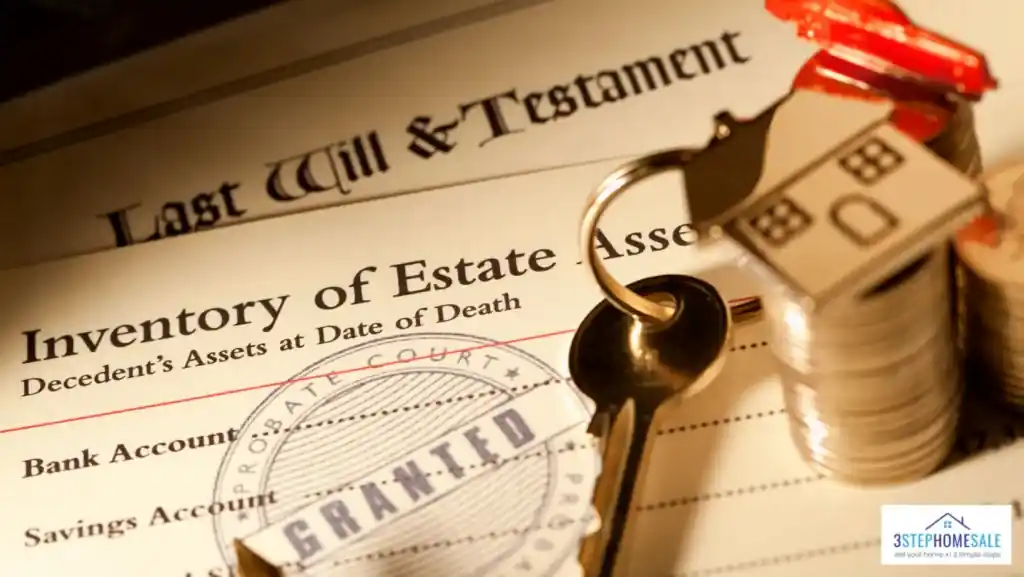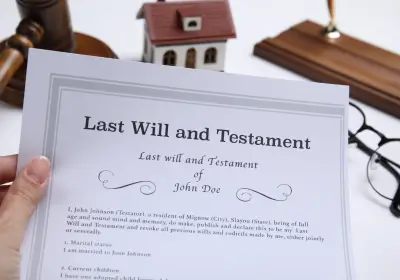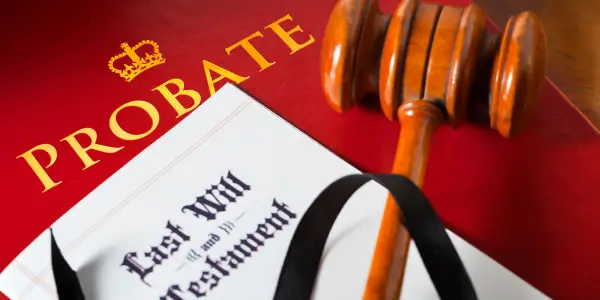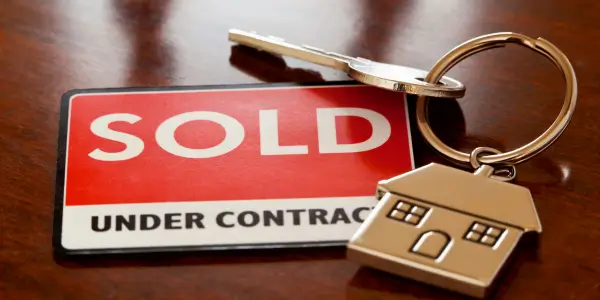
Table of Contents
Can I Sell a House in Probate in Virginia?
Selling a house in probate in Virginia is absolutely possible, but it doesn’t work the same way as a normal home sale. Probate is the legal process the court uses to make sure a person’s debts are paid and their property is passed on correctly after they pass away. If the estate includes a house, the court has to be involved before it can be sold. That means the person in charge of the estate, called the executor (if there’s a will) or administrator (if there isn’t one), must first get legal permission from the court to move forward. In some cases, the judge may even need to review and approve the actual sale terms before the deal can close.
All of this can slow things down, which is stressful for families already going through a difficult time. That’s why 3 Step Home Sale offers a simple alternative, we purchase probate houses directly for cash, in as-is condition, so you don’t need to worry about repairs, agent commissions, or drawn-out listings. By keeping the process simple and fast, we help families move forward faster and with less hassle.
Get An Offer Today & Pick Your Close Date
Fill Out the Form and Our Team Will Call With Your Offer
Understanding Probate in Virginia
What is Probate in Real Estate?
Probate is a legal process that occurs after someone passes away, ensuring that their estate is administered according to their wishes. This involves validating their will (if one exists), settling any debts, and distributing the remaining assets to heirs. The probate process can be lengthy and complicated, but it serves a crucial purpose: to ensure that the deceased’s affairs are handled fairly and legally.

In Virginia, probate can be particularly intricate due to specific state laws that dictate how estates must be managed. If no will is present, the estate is handled according to Virginia’s intestacy laws, which determine who inherits what based on familial relationships.
The Probate Process Explained
The probate process typically involves several key steps:
- Filing the Will: If the deceased left a will, it must be filed with the local probate court. This initiates the probate process.
- Appointing an Executor: The court appoints an administrator who is responsible for managing the estate. If there is a will, the executor is usually named in it.
- Inventory of Assets: The executor is tasked with compiling a comprehensive list of the deceased’s assets. This includes real estate, bank accounts, investments, and personal property.
- Settling Debts: Outstanding debts, such as mortgages, credit card balances, and any other liabilities, must be paid from the estate’s assets before any distribution to heirs occurs.
- Distribution of Assets: Once all debts are settled, the remaining assets are distributed to the heirs according to the will or, if there is no will, according to Virginia’s intestacy laws.
Get An Offer Today & Pick Your Close Date
Fill Out the Form and Our Team Will Call With Your Offer
What Happens to a House During Probate?
During probate, a house goes through several critical stages as the court and the executor work to determine its future. This process ensures that the property is properly managed and distributed according to the deceased’s wishes or legal requirements. Let’s break down the typical steps involved:
- Valuation: The first step in probate is determining the property’s value. The house is appraised to establish its fair market value, which helps assess the overall value of the estate. This valuation is crucial for calculating any potential estate taxes and determining the amount available for distribution among the heirs or to cover outstanding debts.
- Securing and Maintenance: Once the valuation is done, the executor is responsible for maintaining the property. This involves securing the house, ensuring utilities are still active, handling any necessary repairs, and protecting it from potential damage or vandalism. Proper maintenance helps preserve the property’s value while the probate process is underway.
- Debt Settlement: Before any distribution can take place, the estate’s debts must be addressed. This includes paying off outstanding bills, loans, taxes, and any other financial obligations. If the deceased had significant debts, the house might need to be sold to cover these expenses.
- Sale or Transfer: Depending on the terms outlined in the will or the court’s decision, the property may be sold or transferred. If the house is sold, the proceeds are used to pay off debts, taxes, and then distributed according to the will. If there are no outstanding debts, the house can be transferred directly to the beneficiaries or heirs as specified.
- Ownership Transfer: After the probate process is complete and all debts have been settled, the ownership of the property is either formally transferred to the designated heirs or sold as per the court’s instructions. If transferred to the heirs, they receive clear legal ownership, allowing them to use, sell, or manage the property as they see fit.
- Distribution of Proceeds: If the property is sold, the funds from the sale are distributed to the beneficiaries according to the terms of the will or, in the absence of a will, according to state law. This step marks the final phase of the probate process, ensuring that all financial and legal matters are resolved.

If a House Is in Probate Can It Be Sold?
Yes, a house in probate can be sold, but specific conditions must be met before the sale is allowed. The executor or administrator of the estate must get the court’s approval to sell the property. This often involves filing a petition to request the sale and demonstrating that it’s in the best interest of the estate and its beneficiaries.
Selling a house during probate can be beneficial for several reasons:
- Debt Payment: The proceeds from the sale can help cover the deceased’s debts and other estate expenses.
- Simplification: It reduces the number of assets that need to be distributed among the heirs.
- Liquidation: Turning the property into cash can make it easier to divide the inheritance.
What is a Probate Sale?
A probate sale refers to the sale of property that is part of a deceased person’s estate and is overseen by the court. These sales often have unique requirements and procedures compared to traditional real estate transactions. Unlike typical home sales, probate sales require court approval, which adds an additional layer of complexity.
Probate sales can be beneficial in various scenarios, particularly when the estate needs to liquidate assets to settle debts or when heirs wish to divide the estate. Understanding how these sales work is crucial for anyone involved in the process.
How long does the probate process take in Virginia?
The length of the probate process in Virginia can vary significantly based on several factors, including the size and complexity of the estate, the presence of a will, and whether any disputes arise among heirs or creditors.
On average, the probate process typically takes between six months to over a year to complete. Simpler estates, where the assets are straightforward and there are no disputes, may be settled more quickly, sometimes in as little as three to six months. However, more complex estates, especially those involving multiple properties, significant debts, or contested wills, can take much longer.
Additionally, several steps can impact the timeline:
- Court Schedule: The availability of the court can affect how quickly hearings and approvals are scheduled.
- Notification Periods: Virginia law requires a notification period to allow creditors to make claims against the estate, which can extend the duration of the process.
- Appraisals and Inventory: The time it takes to appraise the estate’s assets and complete the inventory can also influence how long probate takes.
In summary, while some estates can be settled relatively quickly, others may take a considerable amount of time, and it’s essential to be prepared for potential delays.
Get An Offer Today & Pick Your Close Date
Fill Out the Form and Our Team Will Call With Your Offer
Selling a House During Probate
Can You Sell a House in Probate?
Yes, selling a house in probate is actually not as difficult as most people fear. However, certain legal steps must be followed. In Virginia—whether the property is in Fairfax, Arlington, Alexandria, Norfolk, or anywhere else in the state—the executor or heirs may need to obtain court approval before proceeding with the sale. This process is essential to ensure that all actions taken are in compliance with the law and that the interests of all heirs are considered.

How to Sell a House in Probate
Selling a house in probate involves a series of steps that must be executed carefully. Here’s a detailed look at the process:
- Understand Your Role: As an executor or heir, it’s vital to clarify your responsibilities. If you are the executor, you have the legal authority to manage the estate, but this role comes with specific duties and potential liabilities. Consulting with an attorney specializing in probate law can be immensely helpful to ensure that you are following the correct procedures.
- Assess the Property’s Value: Before listing the property, hiring a professional appraiser to determine its fair market value is advisable. This valuation will guide your selling price and help set expectations for the heirs. An accurate appraisal is crucial in probate sales, as it ensures compliance with court requirements.
- Obtain Court Approval: Before you can list the property for sale, you must seek court approval. This typically involves filing a petition with the court, detailing the reasons for the sale and providing any necessary documentation. In some cases, a court hearing may be required where interested parties can express their opinions.
- Prepare the Property for Sale: After obtaining court approval, you can begin preparing the property for sale. This may involve making minor repairs, cleaning the property, and staging it to enhance its appeal. Consider the property’s condition and potential improvements that could increase its marketability.
- Marketing the Property and Accepting Offers: Once the property is ready for sale, it’s time to market it effectively. Selling to cash buyers can be particularly advantageous, as they can expedite the sale process. Cash offers simplify transactions and eliminate many potential complications associated with financing.
- Finalizing the Sale: After accepting an offer, the final sale must again be approved by the court. This step ensures that the transaction complies with Virginia probate laws and that all heirs are treated fairly.

Important Considerations for Selling
- Communication with Heirs: If you’re selling a house in probate, keep all heirs informed throughout the process to avoid misunderstandings or conflicts. Open communication can help maintain family relationships and ensure that everyone feels included in the decision-making process.
- Professional Help: Engaging with real estate agents or attorneys who have experience with probate sales can help navigate the complexities effectively. Professionals familiar with the probate process can provide invaluable insights and help streamline the transaction.
- Court Hearings: Be prepared for potential court hearings to finalize the sale. This can add time to the process, so factor this into your timeline. Understanding what to expect during these hearings can help you prepare adequately.
- Timing and Flexibility: The probate process can be unpredictable, so it’s essential to be flexible with your timeline. Delays may arise due to court schedules or other unforeseen circumstances.
Get An Offer Today & Pick Your Close Date
Fill Out the Form and Our Team Will Call With Your Offer
Practical Strategies for Selling a House in Probate
Engaging Professionals
Working with professionals who understand the probate process can significantly ease the burden. Consider hiring an estate attorney specializing in probate law, a real estate professional with experience in probate sales, and possibly a financial advisor to navigate tax implications.
These professionals can help ensure compliance with legal requirements, assist in preparing the property for sale, and provide guidance throughout the transaction. Their expertise can save you time and help avoid costly mistakes.
Marketing the Property Effectively
A well-executed marketing strategy can attract potential buyers and expedite the sale process. Consider the following tips:
- High-Quality Photography: Invest in professional photography to showcase the property in its best light. High-quality images can make a significant difference in attracting buyers.
- Detailed Descriptions: Craft engaging and informative descriptions highlighting the property’s features and potential. Be transparent about any repairs or improvements needed, as this builds trust with potential buyers.
- Utilize Online Listings: Leverage online real estate platforms and social media to maximize exposure. These tools can help reach a broader audience, increasing the chances of a quick sale.
- Host Open Houses: Consider hosting open houses to allow potential buyers to tour the property in person. This can create a sense of urgency and attract serious buyers.
Understanding the Local Real Estate Market
Familiarizing yourself with the local real estate market is crucial for setting a competitive price and attracting buyers. Research comparable properties in the area to gauge current market trends, pricing, and buyer demand. Being well-informed about the market can empower you to make strategic decisions that benefit the estate.

Conclusion
Selling a house in probate in Virginia can feel overwhelming, especially when you’re dealing with so many emotions. But understanding the process and getting help from the right people can make things much easier. By knowing the necessary steps, keeping communication open with everyone involved, and being aware of any legal and tax issues, you can handle this tough situation more smoothly.
One option to think about is selling to cash home buyers. They can speed up the sale, helping you avoid a lot of stress and paperwork. This way, you can focus on what really matters during this time, remembering your loved one and taking steps toward healing.
Choosing a cash buyer can make the process easier, letting you close this chapter without the added pressure. It’s a chance to move forward with peace of mind, knowing you’ve made a good decision during a difficult time.
Frequently Asked Questions
Can you sell a house in probate in Virginia before probate is complete
In Virginia, a probate house usually cannot be sold until the court grants the executor or administrator authority. Once this authority is issued, the property can be listed or sold, often with court oversight. If heirs want to sell fast, a cash buyer can speed up the process once legal approval is secured.
How do I sell a probate house fast for cash in Virginia?
To sell quickly, the executor should complete the probate filing, obtain court approval, and work with a cash home buyer. Cash buyers in Virginia often purchase probate homes “as-is,” which avoids repairs and traditional listing delays. This allows the sale to close in weeks instead of months, giving heirs faster access to funds.
What authority does an executor or heir have to sell a house in Virginia probate?
Only the court-appointed executor or administrator has legal authority to sell probate property. Heirs cannot sell the house on their own, but they may receive proceeds after debts and expenses are paid. The executor must follow court procedures and sometimes obtain approval before finalizing the sale.
Do probate home sales in Virginia require court approval?
Yes, most probate sales in Virginia require court approval to ensure the property is sold fairly and debts are properly settled. The executor typically petitions the court and provides details of the sale. Once approved, the property can be sold to a buyer, including cash investors for a faster closing.
Key Takeaways
- Selling a house in probate in Virginia might feel complicated, but it can be simpler than you think. By knowing the steps and considering cash buyers, you can make the process quicker and easier.
- Understanding the probate process in Virginia is crucial for a smooth sale.
- Engaging with cash buyers can expedite the sale of a probate property.
- Being aware of tax implications can help avoid unexpected liabilities.
- Emotional support is essential during the probate sale process.
Sell Your House Fast In:
Vienna | Manassas | Richmond | Norfolk | Virginia Beach
